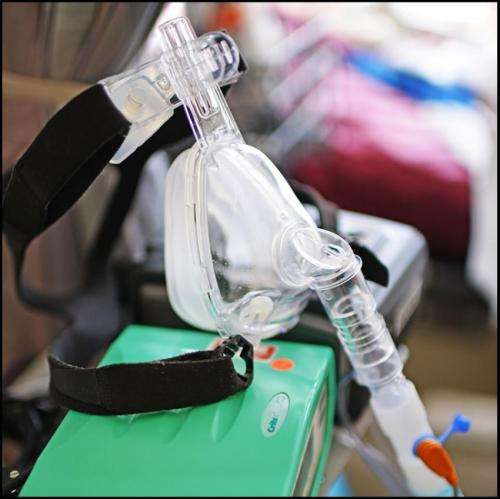New research suggests sleep apnea screening before surgery

Scheduled for surgery? New research suggests that you may want to get screened and treated for obstructive sleep apnea (OSA) before going under the knife. According to a first-of-its-kind study in the October issue of Anesthesiology, the official medical journal of the American Society of Anesthesiologists® (ASA®), patients with OSA who are diagnosed and treated for the condition prior to surgery are less likely to develop serious cardiovascular complications such as cardiac arrest or shock.
"OSA is a common disorder that affects millions and is associated with an increased risk of surgical complications, but the condition often goes unrecognized," said Thomas Mutter, M.D., lead author, department of anesthesia and perioperative medicine, University of Manitoba, Winnipeg, Canada. "As many as 25 percent of surgical patients may have OSA, but the vast majority of these patients aren't treated or don't know they have the disorder."
OSA causes the soft tissue in the rear of the throat to narrow and repeatedly close during sleep. The brain responds to each of these "apnea events" by waking the person in order to resume breathing. Since apnea events can happen hundreds of times per night, sleep becomes broken and ineffective and can lead to serious health problems if undetected. Those who are overweight or have high blood pressure are predisposed to developing OSA. It tends to occur in men but women can also develop OSA. Symptoms of apnea may include: heavy snoring, pauses in breathing during sleep and excessive sleepiness during the day.
The study compared postoperative outcomes in 4,211 patients with OSA, who were diagnosed by sleep study either before or after surgery, with a matched control group of patients who did not have the condition. Those who were diagnosed with OSA prior to surgery were prescribed treatment with continuous positive airway pressure (CPAP) therapy. CPAP keeps a patient's airway open by gently delivering pressurized air through a face mask.
The study found that although patients with untreated OSA were at an increased risk of developing cardiovascular complications, patients who were diagnosed and treated with CPAP therapy before surgery were less than half as likely to experience cardiovascular complications such as cardiac arrest or shock.
Additionally, researchers found that respiratory complications were twice as likely to occur in patients with OSA, compared to patients without the condition, regardless of when patients were diagnosed or if CPAP therapy was prescribed.
















